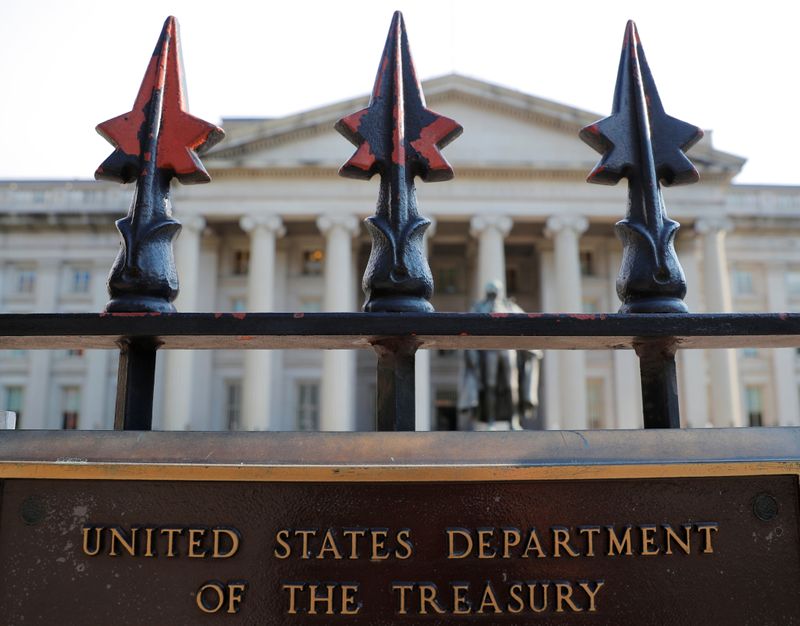WASHINGTON (Reuters) - The United States on Thursday imposed fresh Iran-related sanctions, blacklisting an entity and an individual as Washington continues to ramp up pressure on Tehran during U.S. President Donald Trump's final months in office.
The U.S. Treasury Department in a statement said that it had slapped sanctions on Shahid Meisami Group and its director, accusing the entity of being involved in Iran's chemical weapons research and linked to the Iranian Organization of Defensive Innovation and Research, blacklisted by Washington and formerly headed by the Islamic Republic's top nuclear scientist killed last week.
The move comes days after the killing of Mohsen Fakhrizadeh. Iran's supreme leader promised on Saturday to retaliate for the killing, raising the threat of a new confrontation with the West and Israel in the remaining weeks of Trump's presidency.
"Iran’s development of weapons of mass destruction is a threat to the security of its neighbors and the world," Treasury Secretary Steven Mnuchin said in the statement.
"The United States will continue to counter any efforts by the Iranian regime to develop chemical weapons that may be used by the regime or its proxy groups to advance their malign agenda," he added.
Thursday's action freezes any U.S. assets of those blacklisted, generally bars Americans from dealing with them and denies them access to the U.S. financial system.
"The United States is concerned about the regime’s true intent with regard to the testing and production of these so-called chemical incapacitation agents, which could be used either to further oppress Iranian citizens or for offensive purposes," U.S. Secretary of State Mike Pompeo said in a separate statement.
U.S. Special Envoy for Iran Elliott Abrams last week said the Trump administration would continue to tighten sanctions on Iran during its final months in office, with sanctions related to arms, weapons of mass destruction and human rights expected through December and January.
Tensions between Washington and Tehran have risen since Trump abandoned Obama's 2015 Iran nuclear deal, and restored harsh economic sanctions to pressure Tehran to negotiate deeper curbs on its nuclear program, ballistic missile development and support for regional proxy forces.

President-elect Joe Biden, set to take office on Jan. 20, has said he will return the United States to the Obama-era deal if Iran resumes compliance.